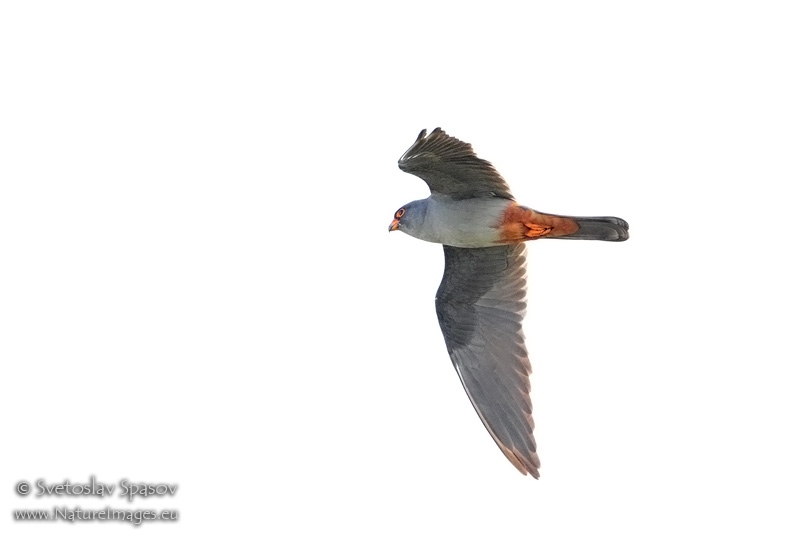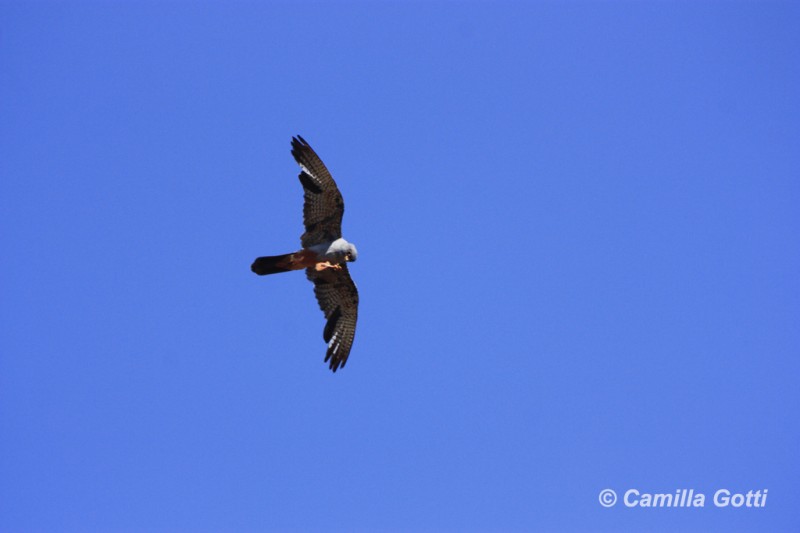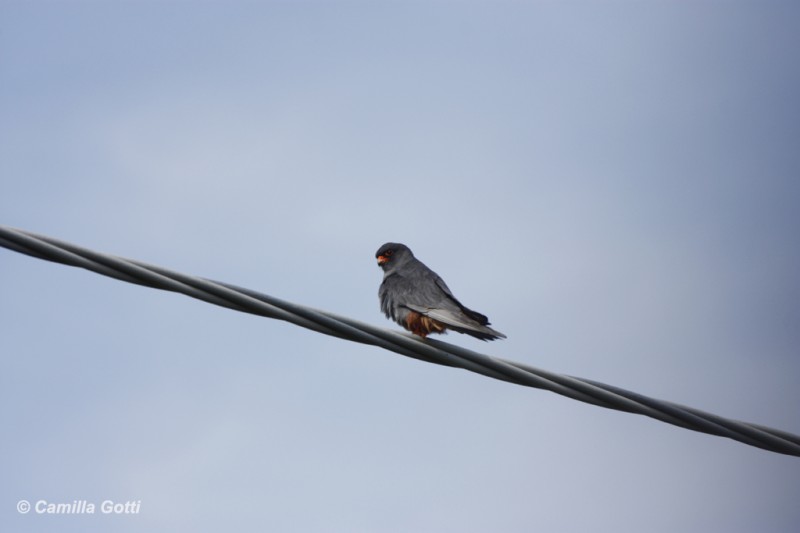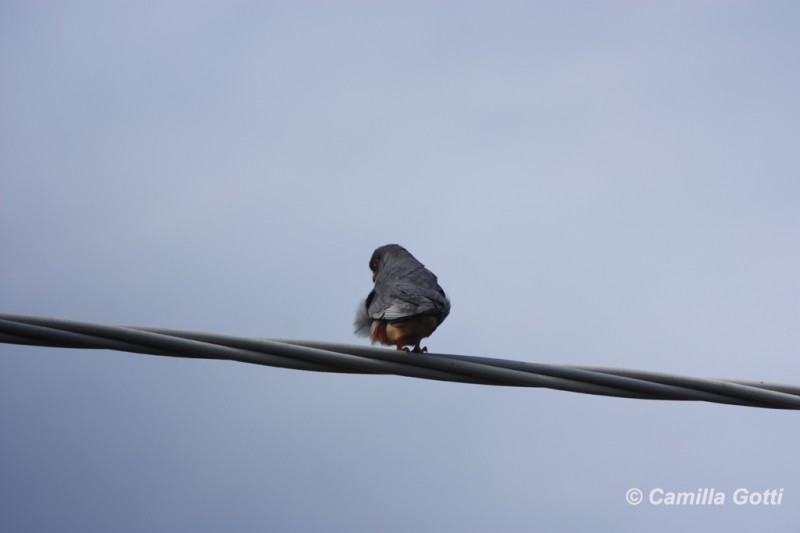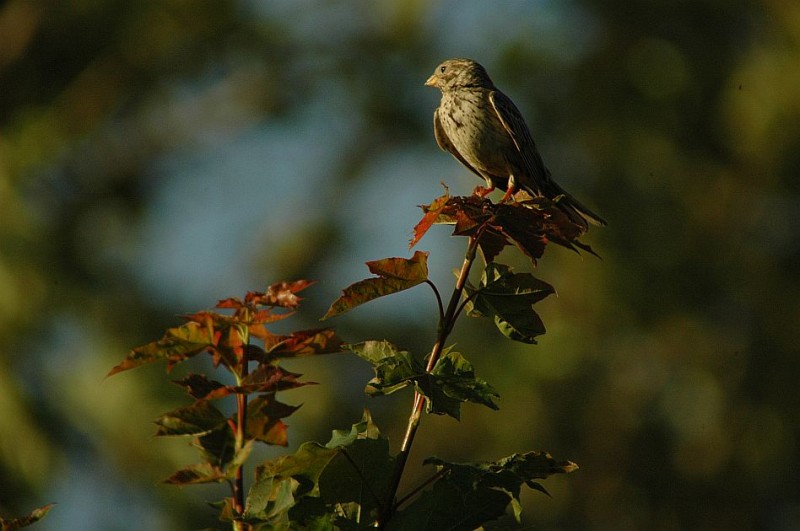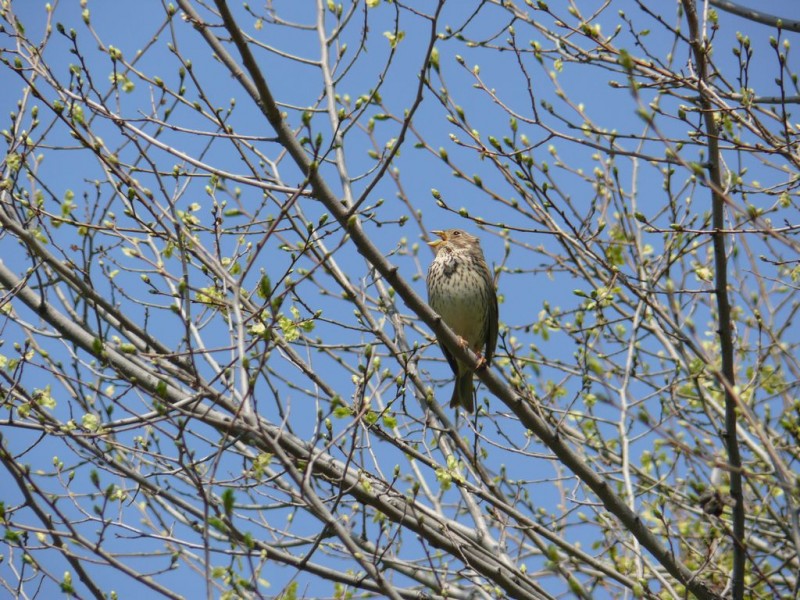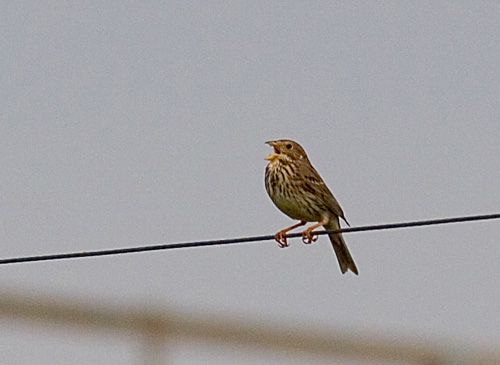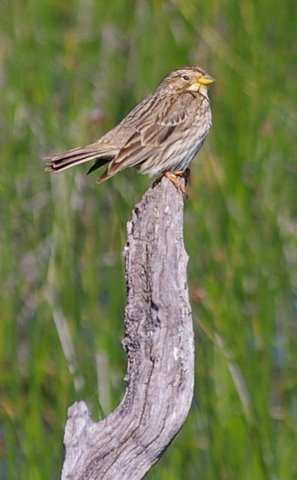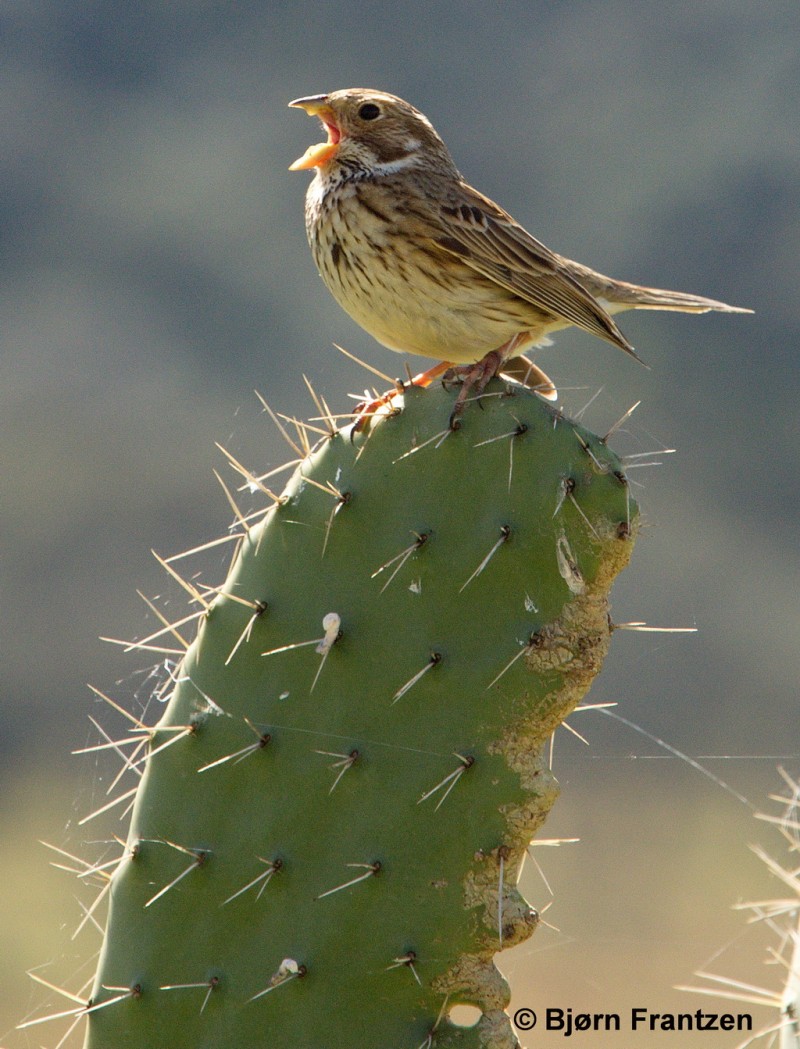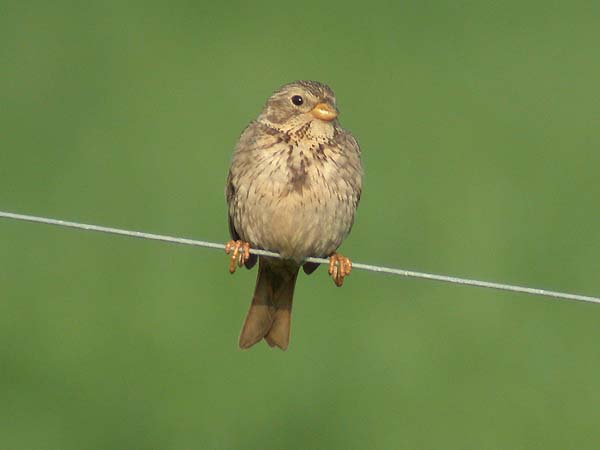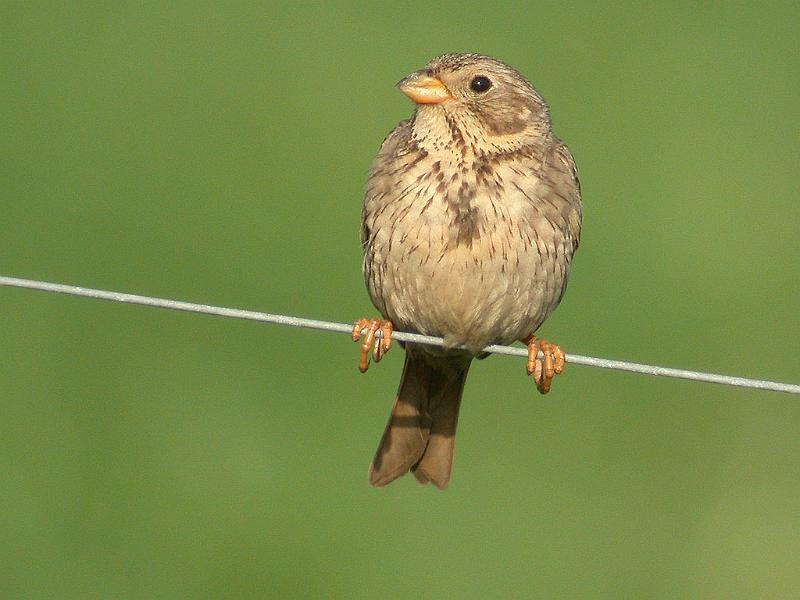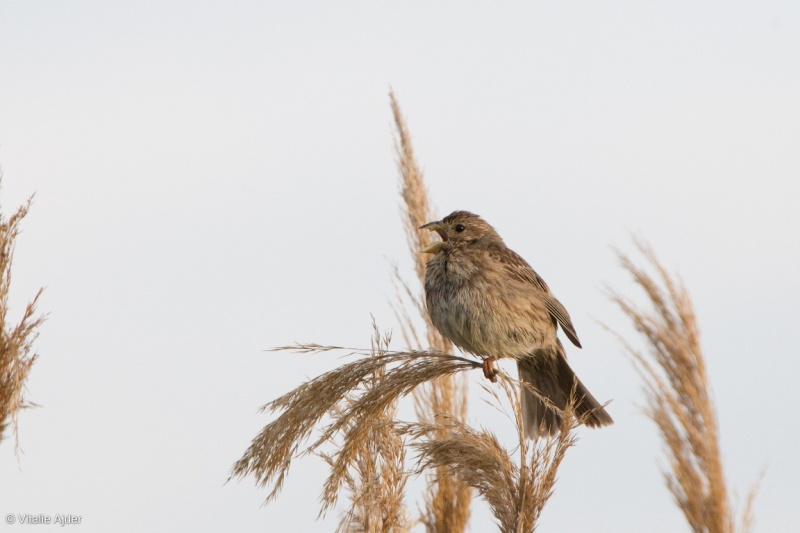Red-footed Falcon (Falco vespertinus)
Corn Bunting (Emberiza calandra)
Small falcon recalling both Kestrel and Hobby at a distance, but most likely to be confused with latter. Adult male unmistakable with ashy grey plumage and rufous red "trousers". Colour of trousers not always obvious, but silvery upperwing often visible in flashes at distance. Adult female also distinct with almost unstreaked buff underparts and under wing-coverts, buff neck and crown, dark mask and white cheeks. Immature most likely to be confused with Hobby but differs in barred upper side of tail, pale forehead, white (half)collar, contrasting dark trailing edge to wing and more striking fringes to coverts. Underparts also less heavy streaked. Flight profile similar to Hobby but tail slightly longer and more rounded. Hunts insects in flight, but in contrast to Hobby, hovers frequently and with deeper wingbeats than Kestrel.
Sound:Flight call very similar to Hobby, a wryneck-like series of "kew kew kew kew", each call falling rapidly in pitch. Sometimes given in a harsher more staccato version. Very vocal at colony with various squeaky and whimpering begging calls.
Flight call:
Distribution:
Xeno-canto: map
Ecology:Birdlife ecology
Links:
Observation.org Latest observations
Image search Flickr NB! May give other species
CCCC-sound:Tomas Belka, Licence,Link.
CC-photo:Jan Thomas Landgren, Licence,Link.
CC-photo:Paul Cools, Licence,Link.
A featureless, bulky bunting. Larger than Yellowhammer, but with a shorter tail. Combination of size, build, flight-pattern and sound important for identification. Recalls the bigger larks in build. Takes off with a loose and surging flight, often with legs dangling underneath. Undulations particularly strong just before landing. Wings dark, and tail without white feathers or markings. "Tooth" in upper mandible visible at close range when singing. Bill and legs yellowish pink. Often shows an indistinct, dark breast patch.
Sound:Song diagnostic. A brittle, jingling and accelerating phrase of about 2 seconds duration. Repeated in a monotonous manner, to form a typical soundscape of fields where it is numerous. Often compared to the sound of a chain of small keys. The phrase starts with a few staccato, ticking sounds that progress into a dry trill, followed by a short ritardando. Calls with a dry "chep" or a brittle "vitt".
Song:
Distribution:
Wikipedia: map (se also Xeno-canto below)
Ecology:Birdlife ecology
Links:
Observation.org Latest observations
Image search Flickr NB! May give other species
CC
 English
English Albanian
Albanian
 Armenian
Armenian
 Bulgarian
Bulgarian
 Catalan
Catalan
 Croatian
Croatian
 Czech
Czech
 Danish
Danish
 Dutch
Dutch
 Finnish
Finnish
 French
French
 Georgian
Georgian
 German
German
 Greek
Greek
 Hungarian
Hungarian
 Italian
Italian
 Latvian
Latvian
 Lithuanian
Lithuanian
 Macedonian
Macedonian
 Norwegian
Norwegian
 Polish
Polish
 Portuguese
Portuguese
 Romanian
Romanian
 Russian
Russian
 Sami : Lule sami
Sami : Lule sami
 Sami : North sami
Sami : North sami
 Sami : South sami
Sami : South sami
 Scientific names
Scientific names
 Serbian
Serbian
 Spanish
Spanish
 Swedish
Swedish
 Ukrainian
Ukrainian


